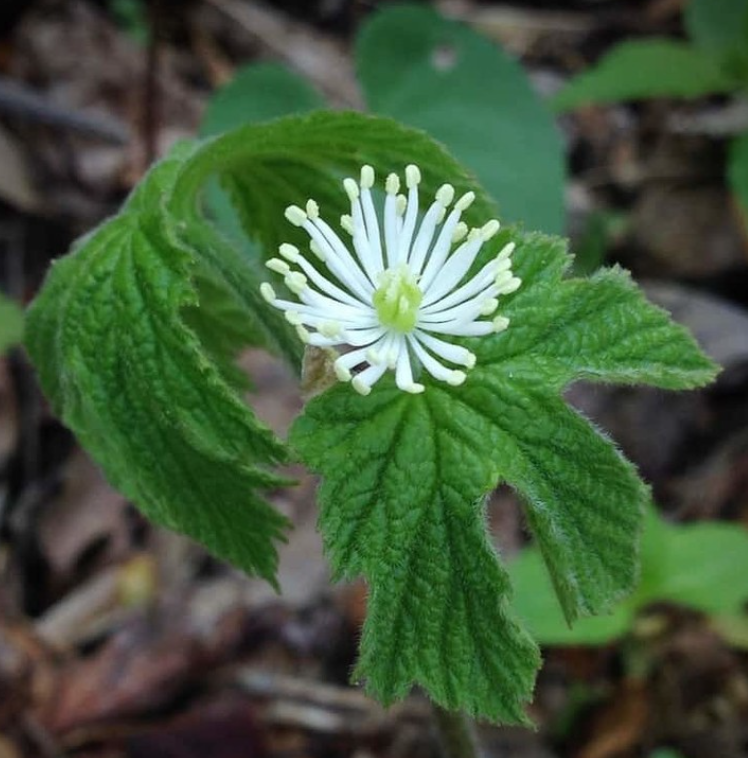Have you ever experienced discomfort or pain during intercourse due to vaginal dryness? It can be frustrating to feel like your body is not cooperating when you only want to enjoy intimacy with your partner. Well, it’s a common issue many women face at some point in their lives.
But fortunately, some natural remedies can help alleviate the symptoms. Herbs for vaginal dryness are a great option to consider. These natural remedies have been used for centuries and have proven effective ways to promote vaginal health. So. if you want a non-pharmaceutical approach to treating your vaginal dryness, then this guide is for you.
What Is Vaginal Dryness and How Does It Affect Women’s Sexual Health

Vaginal dryness is a condition where the vaginal tissues lack sufficient moisture, leading to discomfort, itching, or pain during sex. It occurs when the body fails to produce the natural lubrication that keeps the vagina moist and healthy. While it’s a common problem that affects most women at some point in their lives, it can become chronic and result in more severe symptoms such as burning, soreness, and bleeding during intercourse.
Various factors can cause vaginal dryness, including hormonal changes, menopause, pregnancy, breastfeeding, medications, chemotherapy, radiation, and stress. Hormonal imbalances are the most common cause of vaginal dryness in women, particularly during menopause when estrogen levels decline. Estrogen plays a vital role in regulating vaginal lubrication, and when its levels fall, the vaginal tissues become thin, dry, and less elastic.
Vaginal dryness can significantly impact a woman’s sexual health, causing physical and emotional distress. Women who experience vaginal dryness may find it difficult to become aroused, and sex can become painful, making them avoid sex altogether. This, in turn, can affect their sexual desire and lead to a loss of libido, which can ripple effect on their overall well-being and quality of life.
Common Herbs for Vaginal Dryness

Many herbs can help to alleviate the symptoms of vaginal dryness. I will share with you the best herbs for vaginal health and how they work.
👉Black Cohosh
Black Cohosh, also known as Cimicifuga racemosa, has a long history of use in Native American medicine. It’s a member of the buttercup family and is commonly found in eastern North America. The herb contains compounds, including triterpene glycosides, which have been found to have estrogen-like effects. It’s believed that this is why Black Cohosh has been used for years to ease symptoms of menopause and PMS.
Black Cohosh has been widely studied in clinical trials for its effectiveness in treating vaginal dryness. A study published in The Journal of Women’s Health found that Black Cohosh significantly improved vaginal health in postmenopausal women. The herb has also increased vaginal elasticity and lubrication, improving sexual function.
How Does Black Cohosh Help With Vaginal Dryness?
Menopause is a significant life milestone for every woman, and it often comes with unpleasant symptoms such as vaginal dryness. Black cohosh helps alleviate this symptom by stimulating the pituitary gland to produce luteinizing hormones, which increase estrogen production in the body. By increasing estrogen levels, black cohosh helps to reduce dryness and restores moisture to the vaginal tissues.
Benefits of Using Black Cohosh
Besides alleviating vaginal dryness, Black Cohosh provides numerous other benefits, making it a popular herb among women. Some benefits include reduced hot flashes, night sweats, mood swings, and depression associated with menopause. Black cohosh also has anti-inflammatory properties that help to relieve pain caused by menstrual cramps and arthritis.
Side Effects of Using Black Cohosh
While Black Cohosh is a natural remedy, it still poses potential risks and side effects to some individuals. Some side effects documented include stomach cramps, dizziness, and headaches. Consumption during pregnancy is also not advisable as it can cause complications.
👉Dong Quai
Dong Quai, a herb used in traditional Eastern medicines for centuries, benefits female reproductive health. It contains phytoestrogens that can mimic the effects of estrogen in the body, which is why it is so effective in relieving menopausal symptoms and menstrual cramps. You can ingest the herb by brewing in tea, mixing in foods, or taking supplements. However, Dong Quai’s effects on vaginal dryness might not be immediate, as it may take weeks for its hormonal impact to take effect.
How Does Dong Quai Help With Vaginal Dryness?
Dong Quai helps vaginal lubrication by maintaining the moisture level in your genital area. It also increases blood flow to your reproductive organs, which, in turn, stimulates vaginal secretions. Dong Quai also adds extra protection to the vaginal walls, keeping them moist and healthy. Additionally, it can improve your sex drive, which can improve your sexual arousal and increase vaginal secretions.
In order to ensure maximum benefits, there are different ways you can consume Dong Quai, including making an infusion or decoction tea, taking capsules, or even using it as a tincture. It’s essential to follow the recommended dosage instructions, as the amount you consume can impact its effectiveness and the potential risk of side effects.
Benefits of Using Dong Quai
One of the primary benefits of Dong Quai for vaginal dryness is its ability to boost the production of vaginal mucus. As a result, it helps reduce friction during intercourse, making sex more comfortable and enjoyable. Furthermore, it helps prevent irritation and inflammation in the vaginal area while supporting the overall health of vaginal tissues.
Side Effects of Dong Quai
While Dong Quai is generally safe and effective, it can cause some side effects in some women. For example, it can result in digestive issues such as diarrhea, nausea, or vomiting, especially if taken in high doses. It can also lead to headaches, bloating, and skin rash, particularly for women with hypersensitive skin. Before using Dong Quai, it’s always important to talk to your doctor or healthcare provider, especially if you are pregnant, breastfeeding, or suffering from pre-existing medical conditions.
For instance, if you want to consume Dong Quai supplements, taking no more than 500mg daily is advisable. When supplementing with Dong Quai, it’s also important to consider your health conditions and any other medications or supplements you’re taking. In some cases, Dong Quai can interact with certain drugs such as blood thinners, immunosuppressants, or hormone-related medications.
👉Linseed (Flaxseed)
Linseed (flaxseed) is a powerful herb packed with nutrients, fiber, and antioxidants. It has been used for centuries to promote health and wellness, including as a natural remedy for vaginal dryness.
How Does Linseed Help With Vaginal Dryness?
The primary way that linseed can help with this condition is by providing the body with phytoestrogens, which are plant-based compounds that mimic the effects of estrogen in the body. As estrogen levels decline during menopause, this can lead to vaginal dryness. By supplementing with phytoestrogens, some women find relief from this symptom.
There are several ways to use linseed to treat vaginal dryness. One option is to take a supplement that contains linseed oil, which is high in phytoestrogens. Another option is to add ground linseed to your diet by sprinkling it on cereal, oatmeal, yogurt, or soups. Some women also find that using linseed oil or gel as a vaginal lubricant can help improve moisture levels and reduce discomfort.
Side Effects of Linseed
While linseed can be an effective natural remedy for vaginal dryness, it is important to be aware of its potential side effects. When using linseed supplements, some women may experience gastrointestinal disruptions such as nausea, bloating, or diarrhea. It can also interact with certain medications, so if you are taking prescription drugs or have health concerns, it is important to talk to your doctor before using linseed as a treatment.
Despite these risks, many women find that linseed is a safe and effective way to manage vaginal dryness. It is natural, affordable, and widely available, so it is convenient for those who prefer to avoid chemical-based treatments. As with any herbal remedy, starting with a small dose and monitoring your body’s response is important. Be patient when using this treatment, as it may take a few weeks to see results.
These are just some of the natural remedies available for treating vaginal dryness. Just keep in mind that it is essential to talk to your doctor before using any of these treatments, as they may not be suitable for everyone.
Other Remedies and Treatments for Vaginal Dryness

If natural remedies don’t seem to be helping, other treatments are also available. Below are some other treatments and remedies for this condition:
1: Wild Yam Cream
It is a natural cream derived from the wild yam root. This cream is rich in a natural hormone known as diosgenin, which can help balance the hormonal changes in the body. The cream is applied directly inside the vagina and quickly relieves vaginal dryness. This cream does not contain estrogen but a similar hormone known as progesterone that can alleviate the symptoms of vaginal dryness. It is important to consult with your doctor before using this cream, especially if you have a history of breast cancer.
2:Lubrications
Using lubricants is one of the easiest and most popular remedies for vaginal dryness. There are several types of lubricants available, including water-based, silicone-based, and oil-based lubricants. Water-based lubricants are the most recommended as they are free of fragrances and preservatives that can irritate the vaginal tissues. You can use lubricants during intimate moments, or you can apply them whenever you feel the need to relieve vaginal dryness. Silicone-based lubricants last longer than water-based lubricants but can be more expensive.
3: Applying Estrogen
Estrogen is a hormone that is responsible for the lubrication of the vaginal tissues. However, hormonal changes in the body can affect the natural production of estrogen, leading to vaginal dryness. If you are experiencing severe vaginal dryness, your doctor may recommend applying estrogen directly inside the vagina. Estrogen for vaginal dryness can help restore natural moisture and improve the elasticity of the vaginal tissues. It is important to note that this remedy is only recommended for women, not at a high risk of developing breast cancer.
4.: Hydration
Staying hydrated is a simple but effective way to prevent vaginal dryness. Drinking plenty of water can help keep the body hydrated, including the vaginal tissues. You should also avoid consuming alcohol and caffeine, which can dehydrate the body. Eating foods rich in omega-3 fatty acids, such as salmon, can help keep the vaginal tissues healthy and moisturized. Drinking at least 8 glasses of water per day is recommended to maintain hydration.
5: Vitamin D supplements
Vitamin D is known for its many health benefits, including its ability to improve the symptoms of vaginal dryness. Studies have shown that vitamin D may help improve natural vaginal lubrication by promoting estrogen production. Taking vitamin D supplements can help alleviate the symptoms of vaginal dryness and improve the overall health of the vaginal tissues. However, it is important to consult your doctor before taking supplements.
6: Vaginal Moisturizers
The first option we’ll explore is vaginal moisturizers. These products are designed to make the vaginal area more moist and comfortable. They differ from lubricants, mainly used during intercourse to provide temporary moisture. Vaginal moisturizers come in many forms, including gels, creams, and suppositories. Some common ones include Replens, Hyalo Gyn, and YES VM.
One advantage of vaginal moisturizers is that they are relatively easy to use. You simply apply the product to the vaginal area as needed, usually once or twice a week or when you experience discomfort. However, choosing a high-quality product that does not cause irritation or allergies is essential.
6: Soy
Soy is an excellent source of phytoestrogens, plant-derived compounds that can mimic the effects of estrogen in the body. Estrogen is an essential hormone that helps maintain vaginal lubrication, among other functions. Therefore, soy products or supplements could help alleviate vaginal dryness, especially for women in menopause or who have had a hysterectomy.
Examples of soy products include soy milk, tofu, edamame, and tempeh. Soy supplements come in various forms, such as capsules, powders, and tablets. However, it’s essential to consult your healthcare provider before taking any supplements, as they may interact with other medications or have side effects.
7: Kudzu
Kudzu is a climbing vine native to Japan and China that has been used for centuries in traditional medicine. It contains compounds called isoflavones, which are similar in structure to estrogen. Therefore, some believe kudzu could help improve vaginal dryness and other menopausal symptoms.
Kudzu comes in various forms, such as teas, capsules, and powders. However, its effectiveness in treating vaginal dryness is not well-established, and more research is needed to determine its safety and dosage.
8: Coconut Oil
Coconut oil is known for its anti-inflammatory and antibacterial properties, making it a popular choice for treating vaginal dryness and infections. It’s also a natural lubricant that can prevent friction that can cause vaginal dryness. The fatty acids in coconut oil make it an excellent moisturizer for dry skin, including around the vaginal area.
In order to use coconut oil, apply a small amount to the affected area or use it as a lubricant during sexual activity. It’s important to note that coconut oil can break down latex condoms, so it’s not recommended to use it with condoms.
9: Olive Oil
Olive oil is a natural moisturizer that can help prevent and alleviate vaginal dryness. It’s rich in antioxidants and fatty acids that keep the skin around the vaginal area hydrated, soft, and supple.
To use olive oil, apply a small amount to the affected area or soak a cotton ball in the oil and apply it to the vaginal area. You can also mix olive oil with essential oils such as tea tree oil, known for its antifungal and antibacterial properties.
10: Almond Oil
Almond oil is rich in vitamins and minerals essential for maintaining skin health. It’s a light and non-greasy oil easily absorbed by the skin, making it an excellent choice for treating vaginal dryness. It’s also rich in fatty acids that can help improve skin hydration and prevent dryness.
In order to use almond oil, apply a small amount to the affected area or mix it with other natural remedies such as aloe vera gel or honey, both of which have anti-inflammatory and antibacterial properties.
11: Hormone Replacement Therapy
Hormones play a significant role in vaginal health; a deficiency can lead to dryness. HRT helps to boost estrogen levels and alleviate vaginal dryness. HRT can come in several forms, including pills, patches, and vaginal creams. While it is effective in treating vaginal dryness, it does come with certain risks and side effects, such as breast cancer, blood clots, and stroke. Therefore, discussing the risks and benefits of HRT with your doctor before deciding whether it is right for you is essential.
12: Laser Treatment
Laser treatment is a non-surgical option for vaginal dryness that uses laser energy to produce collagen. It works by stimulating collagen production, which helps support the vaginal tissue, which can lead to improved moisture and moisture retention. Laser treatment begins with an initial consultation to assess your needs and design a unique plan tailored to you. The procedure involves a small probe inserted into the vagina, which then delivers the laser energy and takes between 15 and 30 minutes. Laser treatment is generally safe, with minimal side effects, but it can be expensive.
These are some natural remedies and treatments available for treating vaginal dryness. It’s important to discuss any concerns with your doctor before trying any of these options.
Tips to Prevent Vaginal Dryness

These tips are easy to follow but very effective, and they will not only make your sex life better but also improve your overall quality of life.
✔️Avoid Harsh Soaps
Using harsh soaps, scented detergents, and other irritating products can cause vaginal dryness. These products can strip away the natural oils and bacteria that keep your vagina healthy. Instead, use gentle or fragrance-free products, and keep your vagina clean with warm water.
✔️Eat a Healthy Diet
A healthy diet can help prevent vaginal dryness and maintain overall vaginal health. Foods rich in omega-3 fatty acids, vitamin E, and zinc can help you produce more vaginal discharge. Some of the foods that you should include in your diet are fish, nuts, seeds, leafy greens, and whole grains.
✔️Avoid Smoking and Excessive Alcohol Consumption
Smoking and excessive alcohol consumption can cause vaginal dryness. Smoking can reduce blood flow to the vagina, decreasing vaginal lubrication. Alcohol can dehydrate your body and affect hormone levels, leading to vaginal dryness. So, it is best to avoid or limit smoking and alcohol consumption.
Frequently Asked Questions
Can herbs effectively treat vaginal dryness?
Herbs like black cohosh, Linseed, and dong quai have been known to have estrogen-like effects that can increase vaginal moisture. Plus, as a bonus, these herbs can also relieve menopausal symptoms. It’s always important to consult your healthcare provider before trying new remedies.
How do herbs compare to traditional medical treatments for vaginal dryness?
Unlike traditional medical treatments, which often have unwanted side effects or risks, herbs offer a natural and gentle alternative that many women find highly effective. However, it is essential to research the available herbs and speak with your healthcare provider before using any herbal remedies.
Are there any herbs that should be avoided for vaginal dryness?
While herbs can work wonders for your lady bits, there are also some that you should avoid if you’re struggling with dryness down there. For example, cotton root bark and cascara sagrada can be super helpful for regulating menstrual cycles and easing cramps, but they can also exacerbate dryness. So, if you’re on the hunt for a natural solution to your dryness woes, make sure to do your research and chat with a healthcare professional before incorporating any new herbs into your regimen.
How long does it typically take for herbs to alleviate vaginal dryness symptoms?
Each body is different, so the answer isn’t so clear-cut. Some women start feeling relief in just a few days, while others may take a few weeks. Remember that herbal remedies work slowly, and it’s best to be patient and give the herbs time to take effect. If you don’t notice any changes after a few weeks, try taking a break and trying something different.
Are there any lifestyle changes that should be made while using herbs for vaginal dryness?
If you’re thinking about using herbs for vaginal dryness, it’s important to keep in mind that there may be some lifestyle changes you need to make to see the benefits. From staying hydrated and avoiding caffeine to incorporating certain foods into your diet, you can definitely make some tweaks to your daily routine to help boost the effectiveness of these herbs. So, don’t be afraid to explore your options and find the right combination of herbs and lifestyle changes to help you feel your best.
Final Words
There you have it, ladies – a rundown on all things herbs for vaginal dryness! From black cohosh to Linseed and dong quai, there are many natural remedies to help ease any discomfort you may be experiencing down there. And, as always, be sure to check with your healthcare provider before trying out any new herbs or supplements to ensure they’re safe and right for your unique needs. Stay fresh, stay natural, and have a happy healing!

